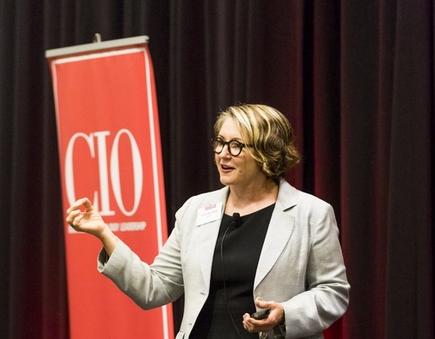Only 14 per cent of large Kiwi firms are deploying ‘gamechanging’ Internet of Things
- 19 June, 2017 05:57

Graeme Muller - CEO, NZTech
Much of the initial hype around IoT has been from consumer IoT such as fitness trackers and intelligent fridges. The real value to be had from the IoT is in enterprise and government applications.
New Zealand is well positioned for the Internet of Things (IoT), such as fast fibre, but the country can do better with this game changing technology, according to NZTech chief executive Graeme Muller.
Muller says a recently completed study of IoT deployment in New Zealand reveals only 14 per cent of large local businesses have deployed any IoT.
Around 70 per cent, meanwhile, think it will be strategically important but are concerned about potential costs and changes in technology, says Muller, who will launch the national IoT research project report on June 29.
The project is being managed by the IoT Alliance and brings together major tech users, tech firms, the government, academia and industry groups such as NZTech, TUANZ and InternetNZ, all of whom have an interest in the potential impact of IoT for New Zealand.
Internationally, IoT will be one of the technology gamechangers, says Muller, in a statement.
“We’re seeing billions of things all connecting with each other, analysing information and automating responses which will drive massive productivity improvements. It is predicted that 100 billion things will be connected to the internet by 2020,” states Mueller.
“As we start using IoT we will start to learn from each other and find new ways of driving our traditional businesses. There are gains to be had in every sector as sensors and data identify new and improved ways of doing things.”
In dairy farming alone, better use of IoT could be worth $448 million in economic benefit to the country.
“IoT connected data will not only help drive economic growth, but can also be used to make New Zealand safer and to improve social outcomes. The government’s role is to act as a catalyst and to ensure all the right building blocks like security and connectivity remain in place.
“IoT will soon become critical to helping New Zealand raise its productivity and prosperity. Much of the initial hype around IoT has been derived from consumer IoT such as fitness trackers and intelligent fridges. The real value to be had from the Internet of Things is in enterprise and government applications.
“IoT presents a massive opportunity for technology to drive New Zealand’s economic growth. Yet to accelerate deployment and uptake, a better understanding of the opportunities is needed.
“Compared to the G20 nations, New Zealand scores well for IoT readiness due to ease of doing business, government stability, regulatory quality, a good innovation ecosystem and education system,” he adds.
He says initial economic analysis has identified potential economic benefits in the hundreds of millions of dollars for the New Zealand economy through the deployment of IoT in sectors as diverse as agriculture, utilities, manufacturing, logistics and smart city services.

There can be significant cost savings, efficiency gains and new revenue streams created through IoT but care must be taken to ensure a worthwhile path is being pursued rather than squandering R & D
Next steps
IDC defines IoT as a network of identifiable things that communicate without human interaction using IP connectivity. It predicts by 2018 there will be 22 million connected things in NZ growing from the current 15 million.
It says there are numerous cases where IoT has aided local businesses such as ASB's use of smart metering where, in the first three years, it reduced energy consumption by 23 per cent or around NZ$2.6 million, says IDC NZ in a recent Futurescape report.
It advises: “If your company has a chief digital officer, ensure that role is much more than just sales and marketing, and that he/she has IT and OT (operational tech) as part of his/her mandate.
“Make an investment in an IoT platform that is capable of managing international assets or endpoints, remotely – allowing IT to get a full view of the endpoints’ activities, connectivity and data.”
“Invest in IoT where it delivers a viable return for the business. There can be significant cost savings, efficiency gains and new revenue streams created through IoT but care must be taken to ensure a worthwhile path is being pursued rather than squandering R & D.”
Forrester, on the other hand, says IoT platforms will transform the way organisations think of physical assets.
These technologies give firms visibility into and control of customer and operational realities, according to Forrester analysts Nigel Fenwick and Ted Schadler.
The ability to map the physical world into a digital model will define business within 10 years. For many companies dealing with physical assets, IoT will simply become a way of doing business, the two wrote in The Top Technologies For Digital Predators, 2017.
“This field is advancing exponentially,” they state. “The traditional ROI payback for high-value assets is months. And in consumer products, sensors allow the experience to be uniquely tuned to the individual customer, increasing the ability to drive loyalty and revenue.”
Jenny Beresford of Gartner, meanwhile, stresses the importance of building a dedicated IoT team.
This team needs to be skilled in designing, mapping, reading, growing and maintaining your enterprise’s IoT internal domains and external products, she states.
“You’ll need a curious, entrepreneurial and strategic-thinking IoT-focused team, who are able to work with abstraction and unprecedented levels of complexity. They’ll be able to anticipate opportunities and threats quickly as industry, market conditions and technologies change.”

At the CIO100 2017 event, Beresford cites some of the areas where IoT will make an impact on both the enterprise and consumer spaces:





Send news tips and comments to divina_paredes@idg.co.nz
Follow Divina Paredes on Twitter: @divinap
Sign up for CIO newsletters for regular updates on CIO news, views and events.

